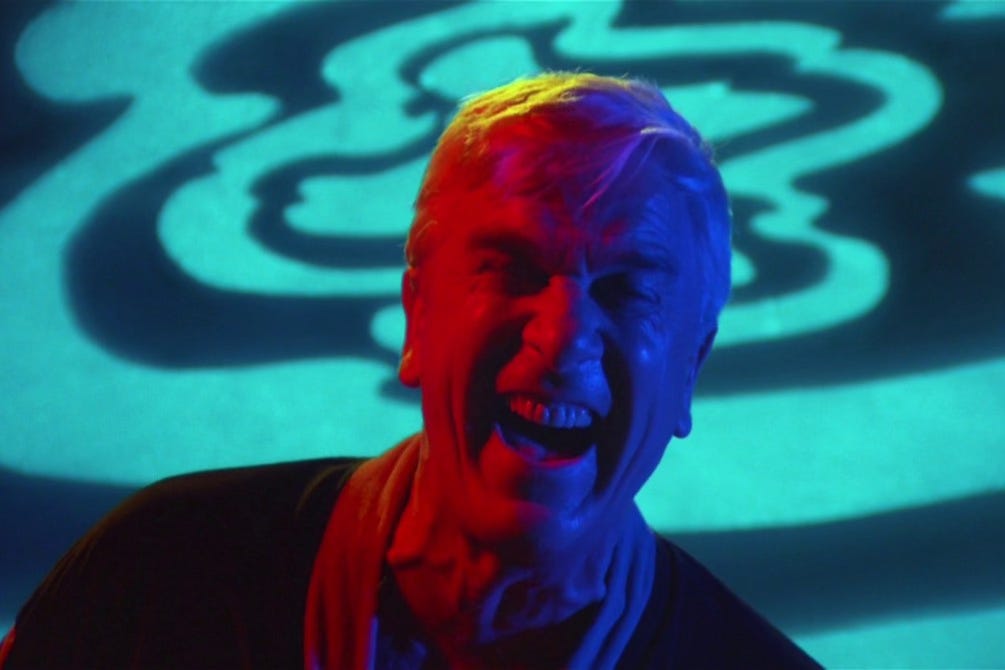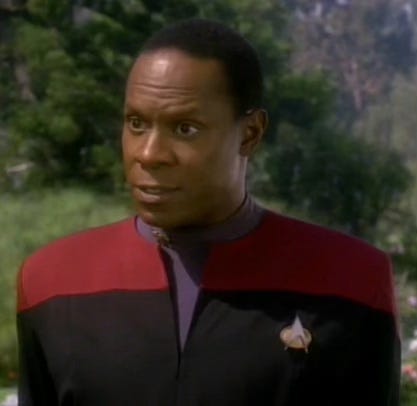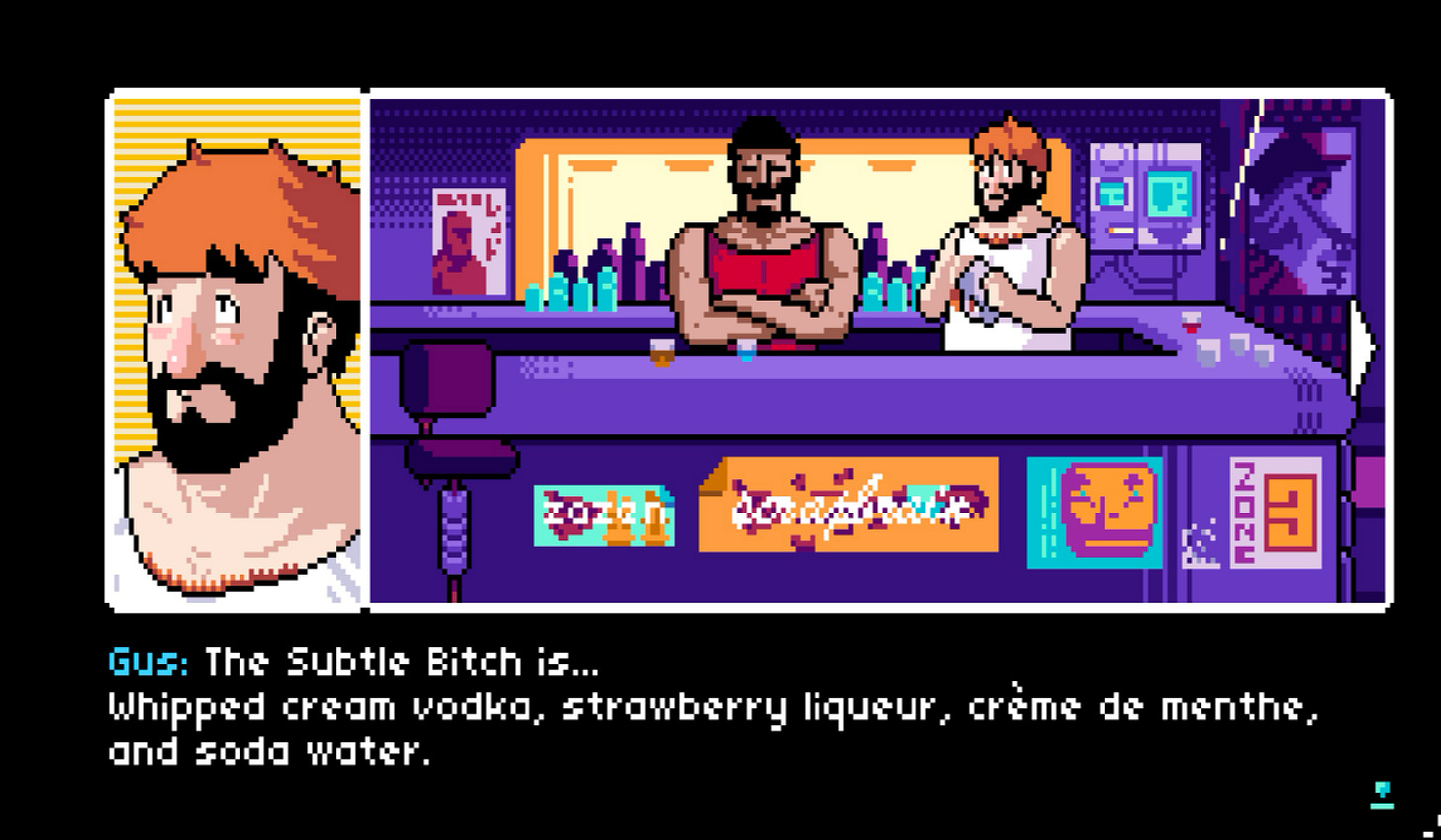Whatcha Got For Me - Part 3
I swear, this one doesn't reference Twin Peaks
This has honestly been the week-ish from hell, so I haven’t had too much mental capacity for fun. Still, I did get around to seeing and playing some cool stuff I want to recommend to you all. If you have something to recommend, drop a line here or on X/Twitter at saveloadquick.
Whatcha Watching
Creepshow - 1982 - Dir. George Romero
I’m not usually a horror guy. Most of the tropes of the genre don’t really affect me in the way that they are intended. Gore becomes stale, characters act more like chess pieces instead of people, and narratives are limited. Indie darling film studio A24 and horror factory Blumhouse have reinvented the genre by adding a politically charged twist with films like Get Out, Us, and the Purge series. Even still, I crave more passion and creativity. George Romero’s anthology film Creepshow filled that void for me.
Creepshow is a collection of short films that were a collaboration between Romero and horror legend Stephen King and all films contain delightful aspects of both artist’s craft. Each short film unfolds like a whimsical storybook chapter. From a vengeful zombie to a goofy werewolf and a thriller killer, the plots are diverse yet connected by their use and celebration of tropes. All of these narratives are filmed with a hand-crafted imagination that evokes Creepshow’s comic book roots. Backdrops will often be bathed in saturated color and even the frame itself will occasionally become cropped to fit a comic book panel-like shape. This style doesn’t always seem appropriate for the narrative beat in which it is introduced, but it nevertheless made me smile every time.
Creepshow is a celebration of the horror genre, blending creativity, humor, and suspense into a delightful package. It remains a testament to the enduring appeal of 1980s horror with its practical effects, amusing characters, and the creativity of Romero and King.
Star Trek: Deep Space Nine - TV
This post doesn’t reference Twin Peaks, but it does reference my other major TV love: Star Trek. My whole life, I have been a firm Captain Kirk and Picard guy. The rest of the franchise was relegated to ‘those weird shows’ that weren’t worthy of my time. Lately, though, I figured it was time to step (lightly) out of my comfort zone to what, I’ve been told, was a more mature take on the Star Trek universe.
I’m only a handful of episodes in and I’ve been enjoying my time so far, though it is still definitely finding its footing and unique voice.
Having the show take place on a solitary space station is a fantastic framing device for unique stories and characters we can come across. However, during the first season, this feels more like a hindrance to the writers instead of being treated like a potential asset. The show finds every excuse possible to get Commander Sisko (Avery Brooks) and crew off of the space station and into a smaller vehicle for TNG-like adventures. From what I’ve picked up on through cultural osmosis, this does improve over time and the story naturally expands into a wartime tale. I can’t wait for that to happen.
Unlike in The Next Generation, the characters of DS9 all are fairly well-defined out-of-the-gate, and their unique traits and personalities already click in a way that is impressive for a Star Trek show, which routinely takes a season or two to get its bearings. The only exception unfortunately is the leader of DS9, Commander Sisko, played by Avery Brooks. I think it’s mostly a performance/direction issue though. Given that the show takes place during a politically unstable period in the timeline, the majority of the actors play their roles with subtlety and nuance. Brooks, on the other hand, feels like he’s always projecting through his diaphragm, as though he is blasting his voice throughout a Broadway theater. It feels off with the tone of the show and makes Sisko stick out like a sore thumb.
I’m enjoying what I’m watching so far and I’m jazzed to spend more time in new(er) Star Trek.
Whatcha Playing
2064: Read Only Memories
Visual novels are an underrated genre in gaming. It’s easy to pass them off as non-games that you just read through, but simple interactions like dialogue choices, on their own, can make for wonderful gameplay. I’ll have more to say on a new podcast I’m developing for Lore Party with my friend Lawerence Kelly, but I do have a few things I want to say about 2064: Read Only Memories, a cyberpunk mystery/adventure /visual novel.
A problem I have with many cyberpunk stories is that they go way over the top to the point that any satire or commentary gets lost in the mayhem. 2064’s story stays firmly planted in a reality that’s only a little future-y.
You are a journalist who is investigating the disappearance of your friend with the help of a sentient AI robot named Turing. All the while, navigating political unrest, poverty, the role of the press in society, and defining yourself. The usual cyberpunk narrative tropes, yes, but handled more deftly than its peers like Cyberpunk 2077. What I think makes 2064 special is its empathy for its characters and the world in which they live. Cyberpunk stories are often so preoccupied with making their worlds ‘cool’ and fashionable that they ignore the people who live there. I won’t go into too many details here, but I just want to hear these characters talk about their lives.
Fortnite OG
GOTY 2023.




